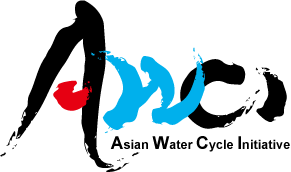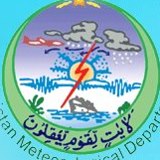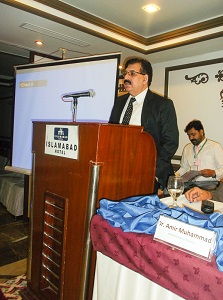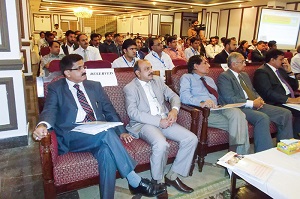Introduction
The Asian Water Cycle Initiative (AWCI) has developed an advanced river management system, which is based on integration of data from earth observation satellites and in-situ networks with other types of data, including numerical weather prediction model outputs, climate model outputs, geographical information, and socio-economic data. The system has been successfully applied to a set of AWCI demonstration basins showing a high potential for practical applications including assessment of climate change impacts on watershed hydrological regimes and hence water resources availability in future.
While AWCI has always aimed at exploitation of available scientific knowledge and technology advancement for addressing the societal needs in the arena of water resources, such efforts on bridging the science at one side and decision making process and operational use at another side have become even more critical now, when AWCI has entered its second phase. Negative consequences of natural hazards are on the rise despite of scientific and technology advancements in relevant fields and thus it is an imperative to implement activities that facilitates implementation of advanced technology and latest scientific knowledge into praxis. This will contribute to building up a resilient society and achieving sustainable development.
Accordingly, AWCI has been now pursuing operational applications of the developed system and, more generally, the established data integration approaches. This requires capacity building activities to assure the system is understood by a large community of experts and practitioners. The planned Training Workshop is one of these capacity building efforts and it is organized as part of the AWCI related projects funded by APN under the CAPaBLE programme, titled: “Impact of Climate Change on Glacier Melting and Water Cycle Variability in Asian River Basins” and led by Dr. Ghulam Rasul, PMD. The Workshop is designed for researchers and practitioners, who are working on assessments of climate change impacts on water resources and also for those with interest in hydrological modeling in snow and glacier basins.
Objectives
The objectives of the Training Workshop include:
- Thematic lectures on Climate-Water-Food-Health Nexus and APN and AWCI related activities in Pakistan.
- Introduction, description and demonstration of capabilities of the Water and Energy Budget Distributed Hydrological Model for Snow and glacier basins (WEB-DHM-S), which is a novel and robust tool for cold region hydrological applications.
- In-depth explanation of the techniques for climate change impact assessment studies on water resources that are built in the Data Integration and Analysis System (DIAS) and available on-line (demonstration version).
- Explanation and Hands-on training on the use of these methods that include:
- selection of suitable GCM outputs for the region of interest,
- rainfall bias correction of these outputs,
- downscaling of the GCM outputs for hydrological modeling at the basin scale,
- hydrological runs by WEB-DHM (without the advanced snow and glacier component) – informative lecture on WEB-DHM will be provided but not full training of the model due to time constraints, and
- analyses of the hydrological simulation results to assess possible impacts of climate change with focus on high flows and floods.



